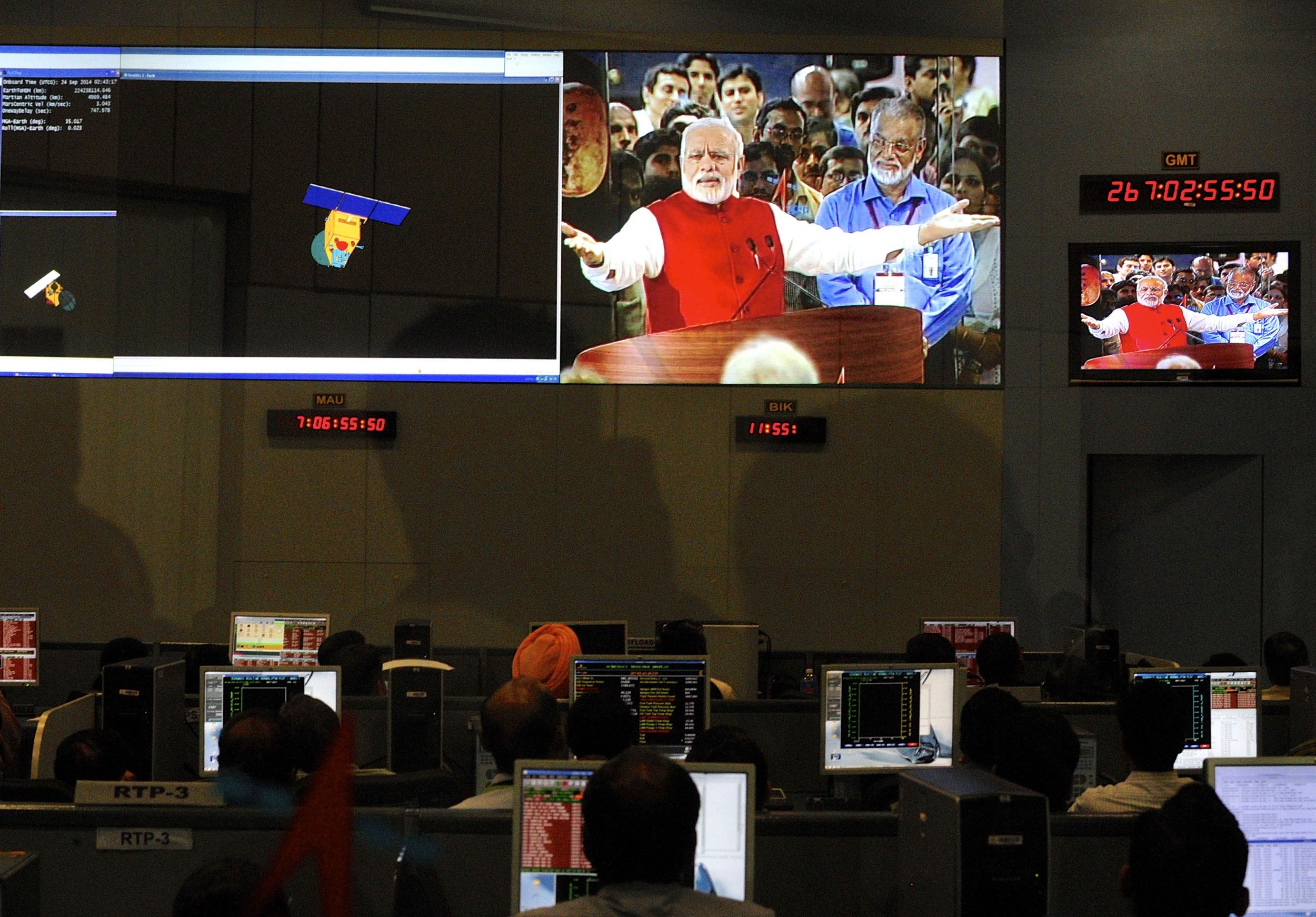
India yesterday became the first country successfully to complete a space mission to Mars on the first attempt, beating China, which does not yet have a craft in orbit around the planet. It also beat Russia and the US, which did not succeed first time, and its cost was only Rs450 crore ($74 million) spent over three years compared with the US spending $679 million over six years.
This week, Narendra Modi, the prime minister, launched his "Make in India" campaign at a televised jamboree in Delhi. This is aimed at persuading foreign companies to invest in India and boost both its unsuccessful manufacturing industry and its exports.
Abandoning the usual comparison between India as a lumbering elephant and China as a prowling tiger, Modi has chosen a lion as the symbol of the campaign, presumably because his home state of Gujarat is home to India's only lions.
With these two events, one might think that all is beginning to come right for a country that has lost its way economically in recent years. The time is good. Modi is about to leave for what promises to be a spectacular five-day visit to the US where he will try to persuade investors and politicians – and world leaders at the United Nations – that India is back on track
Sadly it is not so. Just as Mangalyaan (Mars-craft in Hindi) was entering the Mars orbit, three judges in India's supreme court cancelled, with effect from March next year, 214 of the 218 coal mining licences that have been issued without open tendering between 1993 and 2011. This endangers India's power generation industry, its steelworks and other industries, as well as adding to foreign investors serious worries about the risks and uncertainty of doing business here.
All these events link up to illustrate why India's fudge and fix-it approach to policy making and governance, known as jugaad, coupled with a belief that everything will work out OK (chalta hai), have whittled away at the country's institutions and economic performance to such an extent that Modi won a landslide general election victory four months ago because voters believed he could restore India to its rightful place in the world.
Even though it fails in many industrial areas, India is a world leader in space and rocket technology, manufacturing, and delivery, mainly because the US and other countries stopped it being able to import high technology after its nuclear weapon tests in 1974 and 1998. This meant that India was on its own. So, capitalising on work initiated shortly after independence in 1947 by prime minister Jawaharlal Nehru, scientists and private sector companies produced a series of successes that culminated in yesterday's Mars achievement.
The development speed and low cost of the Mars probe illustrates how Indian industry is capable of developing the negative skills of jugaad into frugal engineering where the best is made of limited resources at minimal cost.
Contrast that with India's defense industry, where there has been no ban on imports and where US and other foreign companies have connived with the defence establishment to such an extent that as much as 70 percent of India's defense orders have to be bought from abroad – even night vision goggles, radars and guns, as well as helicopters, other aircraft, ships and missiles, have not generally been manufactured in India to satisfactory standards.
This bureaucratic throttle-hold on the growth of manufacturing industry stretches far beyond the defence industries, and Modi's hopes of reviving manufacturing industry will not succeed unless he stops bureaucrats working with foreign suppliers to boost imports at the cost of local companies.
Governments till now have failed to tackle these and many other failing in the way India works, which has led to an escalation of "judicial activism" that began over 30 years ago, where courts take it on themselves to order governments and other authorities what to do. Initiatives have ranged from protecting bonded labor and enforcing environmental regulations to ordering Delhi's buses to be powered by compressed natural gas, and even recently challenging the government's tardiness in appointing an official leader of the opposition in parliament.
This has progressively upset the balance between the executive and the judiciary as the machinery of government has begun to implode. But yesterday's mining judgment is probably the most damaging and irrational of edicts. It follows a similar but less economically damaging ruling that cancelled mostly corrupt telecommunications licenses.
It stems from a coal scandal during the time of the last government when coal licenses were handed out without proper controls to a wide range of companies in order to speed up coal-fired power generation. But many companies simply sat on the assets and did not start mining, which led to the Supreme Court action.
It would have been understandable if the judges had cancelled licenses where coal mining had not been started, but it has acted retrospectively on 21 years of licenses and is also fining companies Rs 295 per tonne of coal mined. That money will go to the government which now has six months to reorganize the industry and the inefficient Coal India to try to fill the gaps.
The judges no doubt felt they were doing their legal duty, and it is of course the failings of successive governments that have led the supreme court to intervene to such a degree. And it will no doubt continue to do so until the government gets a grip on affairs that it should be running.
John Elliott's new book is IMPLOSION: India's Tryst with Reality (HarperCollins, India). He can be read at ridingtheelephant.wordpress.com.
Uncommon Knowledge
Newsweek is committed to challenging conventional wisdom and finding connections in the search for common ground.
Newsweek is committed to challenging conventional wisdom and finding connections in the search for common ground.





